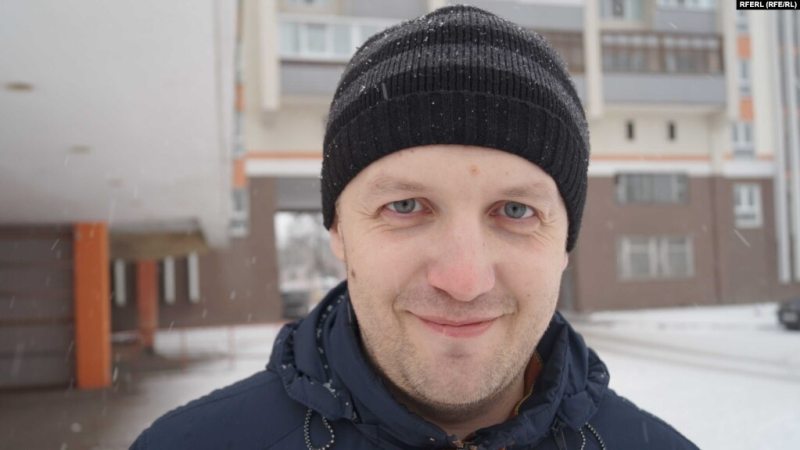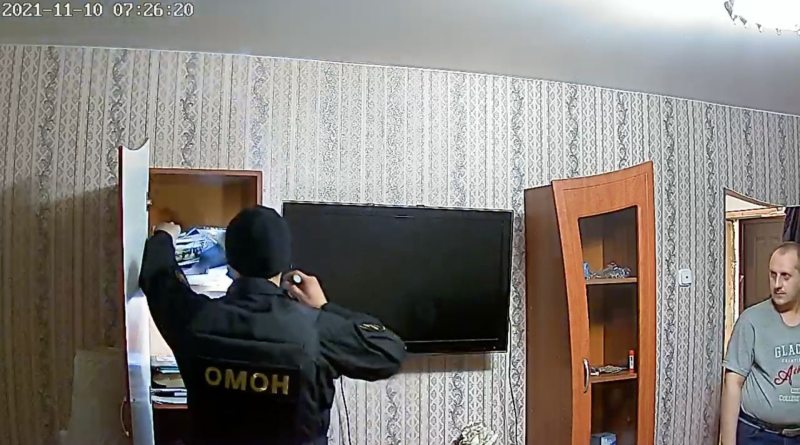Police brutality and arrests force a man with disability to flee Belarus
Siarhei Bialiayeu, a 39-year-old resident of Babrujsk, lives with Parkinson's disease. His physical condition is further complicated by a neurostimulator installed within him, which puts him in the second disability group. Despite his health condition, in 2021, he was detained for a total of three times, cumulatively spending over a month in detention centers. His apartment underwent five searches. Following the string of detentions, Bialiayeu chose to relocate to Latvia.

- Siarhei Bialiayeu. Photo: RFE/RL
Bialiayeu, a Belarusian National Technical University (BNTU) graduate and former employee at Belshina, was first granted disability group three in 2014. Four years later, he had a neurostimulator installed. His condition requires him to follow a special medication schedule. Due to his illness, he had to leave his job and has yet to find a new one.
First encounters with security bodies
The first attempted arrest occurred when Bialiayeu was serving as an observer. However, he managed to escape the security forces. Nevertheless, he was arrested soon after while gathering signatures supporting Svetlana Tikhanovskaya. The authorities allegedly took issue with people in line staying around for a long time.
“I didn't expect them to arrest me like this, so I didn't even bring my pills with me,” Siarhei says. “They were scared of my illness and drove me home a couple of hours later.”
In January 2021, his home was raided, the door was broken, and the lights were turned off. Initially, he was accused of insulting the police. Later, a report was drafted alleging his participation in a picket. Despite the judge acknowledging that he was not the man in the photo taken at the picket, he was sentenced to three days already spent in detention.
While in detention, Bialiayeu fell ill and was transferred to the hospital, where a cardiologist claimed he needed a neurosurgeon's attention. They couldn't find a neurosurgeon, so Bialiayeu returned to the detention facility. The man notes that the conditions were not as strict then, and the acting chief even asked about Sergey's health. When he complained that they were not providing him with bedding, it was quickly brought.
20 plus 12 days in jail
Siarhei Bialiayeu was arrested and sentenced to 20 days in jail again on the eve of March 25, Freedom Day (an unofficial Independence Day celebrated by the opposition), as he walked down the street. This time, the detention was allegedly due to a planned nearby demonstration for Freedom Day. Conditions in detention had worsened considerably since his first stay, leading five detainees, including Bialiayeu, to start a hunger strike.
Following his neurostimulator replacement surgery, Bialiayeu experienced an aggressive home invasion by fully-armed riot police squad members who forcefully threw him to the floor. The reason for the search was the investigation into the Zeltser case. The physical assault resulted in him blacking out, and it was only after noticing his heart surgery scar that they took him to the hospital, revealing his pre-heart attack condition. They then returned him home, where he endured three days of physical distress and anxiety. To this day, he occasionally experiences bouts of unfounded anxiety.

- The security camera filmed the search footage at Siarhei's home.
Bialiayeu's apartment was searched for the fifth time in November, relating to charges of insulting a police officer. This time he was sentenced to 12 days of imprisonment. He fell ill with a fever during his detention, and despite taking a COVID-19 test, he was never informed of the results.
Upon release, he was met by a riot police squad that attempted to make him sign a pledge not to attend any more demonstrations. He refused. Subsequent "preventative talks" hinted he should leave the country, prompting his decision to relocate to Latvia.
Life in exile
In Latvia, Bialiayeu initially lived in a Refugee Center. After receiving refugee status, he began the process of confirming his disability group, which took approximately eight months. Now, the state covers his apartment rent, he receives a pension, and he has a pass for free public transportation.
Despite some initial confusion navigating the healthcare system in Latvia, Siarhei Bialiayeu appreciates its simplicity compared to Belarus. He continues to live with memory issues, requiring specialized medication, and his neurostimulator runs at maximum capacity. Looking ahead, he plans to discuss potential surgery with his doctors, an operation that he should pay for, prompting Siarhei to ask for assistance to cover the cost.

















